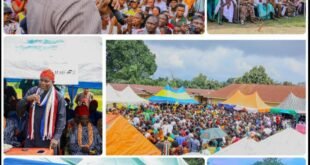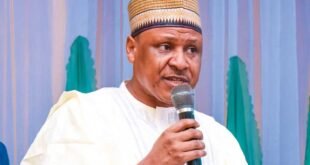Lagos, Nigeria’s economic center, is divided into two distinct regions: Lagos Island and Lagos Mainland. Each region offers unique qualities, economic opportunities, amenities and investment prospects, which shape the city’s lifestyle and real estate landscape.
While Lagos Island is known for its upscale neighborhoods, commercial hubs and cosmopolitan appeal, Lagos Mainland provides a more diverse and affordable environment with a growing industrial and technology sector. Understanding the differences between Lagos Island and Lagos Mainland is essential for anyone wishing to navigate the city’s dynamic property market, assess economic opportunities and make informed investment decisions.
This exploration explores the key aspects that differentiate these two regions, providing insight into quality, economic landscape, facilities, land prospects, property prices and investment opportunities.
Quality of Lagos Island versus Mainland Lagos
Lagos Island:
Geography: Lagos Island is part of the Lagos metropolitan area and includes areas such as Victoria Island and Ikoyi.
Urbanization: It is a commercial center with a mix of modern high-rise buildings and historic architecture.
Lifestyle: It is characterized by a fast-paced, cosmopolitan lifestyle with a higher cost of living.
Population: A more affluent population, with a higher concentration of expatriates and wealthy Nigerians.
Lagos Mainland:
Geography: Lagos mainland includes areas such as Ikeja, Surulere, and Yaba.
Urbanization: This area is more residential and industrial, with a mix of middle- and low-income neighborhoods.
Lifestyle: The lifestyle here is more relaxed compared to Lagos Island, with a diverse community and a wider range of socio-economic classes.
Population: More diverse and generally less affluent than Lagos Island.
Economic Opportunities in Lagos Island and Lagos Mainland
Lagos Island:
Central business: Major financial institutions, multinational corporations, and technology companies are headquartered here.
Tourism and Hospitality: A hotspot for tourists, with many hotels, restaurants, and recreational facilities.
Trading: High-end retail stores, shopping malls and markets such as Balogun Market.
Lagos Mainland:
Industry and Manufacturing: Many industrial areas and factories are located here.
Technology and Startups: Areas like Yaba are becoming technology hubs with an increasing number of startups and technology companies.
Retail and Services: Many small and medium businesses, retail businesses, and service providers.
Facilities on Lagos Island and Lagos Mainland
Lagos Island:
Health: High-class private hospitals and clinics.
Education: Prestigious international schools and universities.
Recreation: Luxury fitness center, spa, garden and beach.
Infrastructure: Better roads, reliable electricity, and water supplies compared to the mainland.
Lagos Mainland:
Health: A mix of private and government hospitals, with more public health facilities.
READ ALSO:Five reasons housing deficit persists in Lagos despite construction boom
Education: Various public and private schools, and several universities.
Recreation: Public parks, sports complexes and community centers.
Infrastructure: Generally less developed infrastructure with more traffic congestion and less reliable utilities.
Prospects for Plantations on Lagos Island and Lagos Mainland
Lagos Island:
High End Development: Many luxury apartments, gated communities, and waterfront properties.
Real Estate Demand: High demand due to commercial interests and affluent lifestyle.
Property Trends: Increased construction of tall buildings and mixed-use development.
Lagos Mainland:
Housing Development: More affordable housing options, with a focus on middle class areas.
Real Estate Demand: Stable demand due to population growth and urban expansion.
Property Trends: Development of new residential areas and renovation of old properties.
Property Prices in Lagos Island and Lagos Mainland
Lagos Island:
Housing area: Prices are much higher, with luxury apartments and houses ranging from millions to billions of Naira.
Commercial: High rental and purchase prices for office space and retail outlets.
Lagos Mainland:
Housing area: More affordable housing, with prices varying greatly depending on the region but generally lower than on the Island.
Commercial: More affordable commercial properties, with lower rental and purchase prices compared to the Island.
Investment Opportunities for Lagos Island and Lagos Mainland
Lagos Island:
Housing area: High return on investment due to premium property prices and constant demand.
Technology and Finance: Opportunities in technology startups, fintech and corporate services.
Hospitality and Tourism: Profitable investments in hotels, restaurants and entertainment.
Lagos Mainland:
Industry and Manufacturing: Investment in factories and production facilities.
Technology and Innovation: A growing technology ecosystem, especially in Yaba.
Housing area: Opportunities in affordable housing projects and commercial properties serving the middle class.
Lagos, Nigeria, is divided into Lagos Island and Lagos Mainland, each with different characteristics and opportunities. Lagos Island, which consists of areas such as Victoria Island and Ikoyi, is a commercial and financial center with a cosmopolitan lifestyle, high-end facilities and an affluent population. It offers high property prices and great real estate investment. Economic opportunities here are concentrated in the financial, technology and hospitality sectors.
In contrast, Lagos Mainland, which includes areas such as Ikeja, Surulere, and Yaba, is more residential and industrial, with a broader socio-economic reach. The area has diverse communities, more affordable housing, and a growing technology and industrial sector. The mainland provides stable demand for real estate, affordable property prices, and investment opportunities in manufacturing, technology startups, and middle-class housing developments.
By Dennis Isong
The post REAL ESTATE BUSINESS OPPORTUNITIES: Lagos Island Vs Lagos Mainland appeared first on Latest Nigerian News | Top News from Ripples Nigeria.
 JamzNG Latest News, Gist, Entertainment in Nigeria
JamzNG Latest News, Gist, Entertainment in Nigeria








